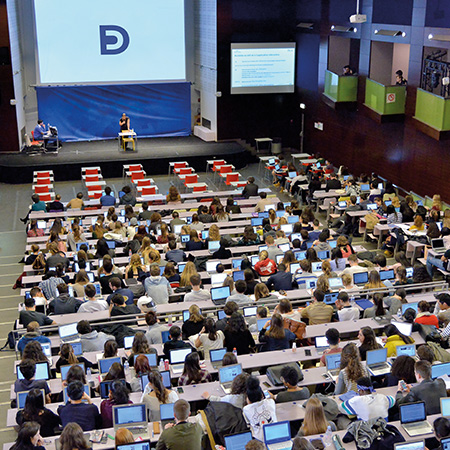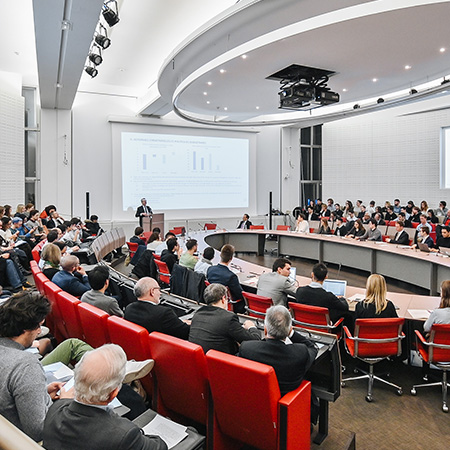Investigating the methods, uses, and effects of digitalization
The advent of mature AI (artificial intelligence) technologies is transforming our societies, our political systems, our modes of production, and how we relate to others.
In the face of deeply profound changes, Université Paris Dauphine – PSL launched Dauphine Digital, an ambitious multidisciplinary program that aims to develop a reflective approach to AI and investigate the methods, uses, and effects thereof.
This strategy requires a perfect mastery of the foundational computer science and math used in these technologies, as well as a detailed understanding of their societal and managerial impact.
In this regard, Dauphine has a clear advantage: since its founding, it has been a place where the organizational and decision sciences rely on the overlapping expertise of several disciplines.
Dauphine Digital focuses on issues related to decision-making responsibility for organizations and societies while addressing ethics, social responsibility, and sustainable development.
Dauphine Digital: Inclusion in an Influential Ecosystem
The Dauphine Digital program relies on Dauphine's mathematics and computer science laboratories, along with PSL's 31A (Interdisciplinary Institute of Artificial Intelligence) known as PR[AI]RIE.
Dauphine also harnesses synergies with its management, economics, sociology and political science, and law laboratories to launch new projects focused on various issues: responsibility of algorithms, confidence and acceptability of these technologies, the digital transformation of modes of production, and establishing governance and standards for these areas.

Going Digital Responsibly

The Digital Transformation of Work
Between automation, the right to disconnect, and information overload, the era of AI and big data is fundamentally transforming organizations, spaces, and work modes, thereby impacting team dynamics and employees' individual motivation.

Data, Confidentiality, and Ethics in the Digital Age
What is a "good" AI decision? Whether one looks at hiring employees or evaluating customers' creditworthiness, technology poses challenges for ethics, confidentiality, and the right to privacy.

Sustainable Digital Development
How do we limit the harmful environmental effects of technological transformations?

Digital Transformation Governance
The current digital transformation is fundamentally altering the market dynamics of entire sectors, in addition to public policy. These profound changes require new modes of governance and regulation, and they raise questions related to digital sovereignty.

The Team
Bruno Bouchard
President of the Université Paris Dauphine-PSL
Isabelle Catto
Vice-President of Education and Student Life at Dauphine-PSL
Pierre Laniray
Vice President for Digital Affairs and Educational Innovation
